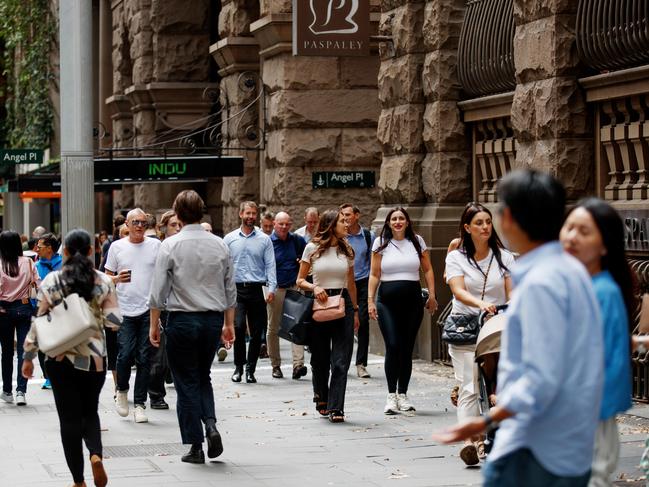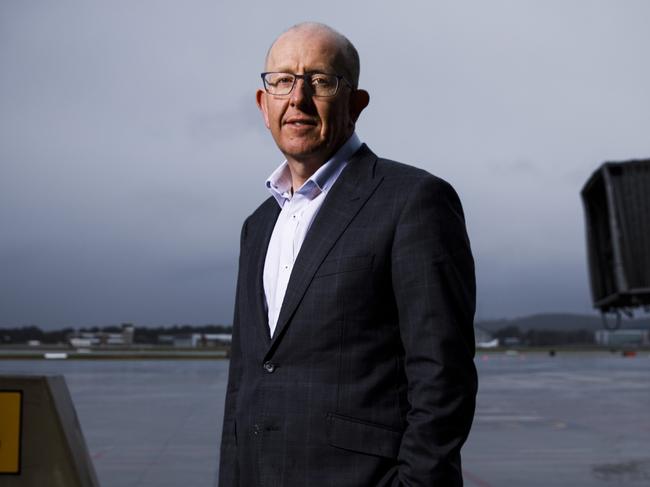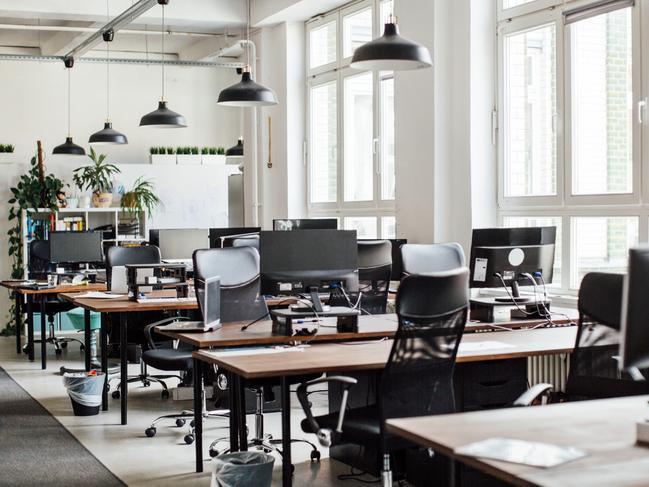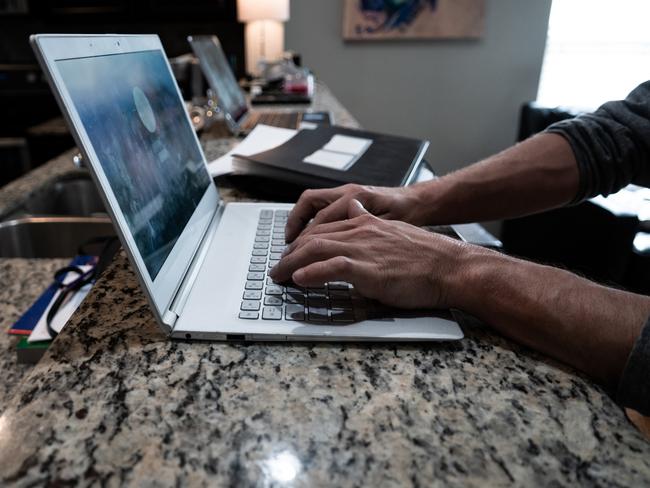‘Job is at risk’: Australian CEO Stephen Byron turns on WFH
Capital Airport Group boss Stephen Byron has accused Australian companies with flexible work arrangements of draining the life out of cities.
At Work
Don't miss out on the headlines from At Work. Followed categories will be added to My News.
Capital Airport Group and Canberra Airport CEO Stephen Byron has slammed Australian companies who continue to allow employees to work from home, saying such policies are draining the life out of offices and cities and could erase the need to hire locally.
At an ACT Property Council breakfast on Friday, the question of flexible work arrangements and motivating staff to head back to the office “dominated” discussion, Canberra local news publication The Riotact reported.
Mr Byron described work from home as hangover from the pandemic – one that was fostering a culture of “isolationism” among Canberrans and diminished the purpose of having a national capital.
“It’s not being part of the team, it’s not being part of the culture, it’s not providing an environment for learning, for the young, for leadership, for mentoring,” he told a panel.
“Canberra particularly has a lot at risk with this work from home, because if you can have a job in Health and do it from Noosa or Brisbane or indeed Darwin, then why have a national capital.
“We’re tribal as people, we work better in teams, we work better collaboratively, we understand what we’re trying to achieve.”

MORE: How to negotiate working from home
If such staffers continue to favour working remotely, Mr Byron said there was little to stop companies from looking further afield when recruiting for roles.
“The truth is, if you want to really work from home, every single person’s job is at risk of being outsourced overseas,” he said.
“We are distorting our workplace and our professions with this work from home policy.
“Managers need to manage people and show leadership and mentoring, and they need to say, ‘I can look after my team as a team, not as an individual, and I’m probably going to employ people who live in the same city’.”


MORE: The best work-from-home jobs in Australia
Public service staff are understood to enjoy some of the country’s most flexible and generous work conditions. For the past 12 months, the majority of federal public service have been allowed to request an “uncapped” amount of working from home days.
At the same time, most other Australians have been ordered back into the office in some capacity – Australian Bureau of Statistics (ABS) data last year showed the first percentage decrease in people working from home since 2020.
Amazon, Dell, Tabcorp and Flight Centre were among the major companies in 2024 to announce new return-to-office push.
Shadow Employment Minister Michaelia Cash told The Daily Telegraph in December the Federal Government “has encouraged the work from home culture in the public service”.
“It is a tragedy that the livelihoods of small business operators (in Canberra) are being compromised,” Senator Cash said.
“There are a lot of questions about the value for money work from home arrangements are providing for taxpayers.”
Asked by news.com.au in January their thoughts on the ongoing debate, 35 per cent of the 1870 people surveyed said they would prefer to work from the office five days a week. Conversely, 31 per cent said one to two days working from home is optimal, 22 per cent said three to four days, and 12 per cent believed working from home full-time to be the best set-up.
Somewhat ironically, almost half (45 per cent) of those who believe full-time office attendance is ideal were retirees. Just 29 per cent of Millennials and 23 per cent of Gen Zers hold the same view.

Australian HR platform Employment Hero’s head of people and culture, Liam D’Ortenzio, attributed these contrasting views between older and younger generations to their having differing lived experiences.
“Older generations began their careers in an era where in-office presence was synonymous with productivity, collaboration, and visibility,” he told news.com.au.
“On the other hand, younger generations have entered the workforce during or after the digital transformation, where remote work has proven not only feasible but often more efficient.”
The coronavirus pandemic “accelerated the shift” in workplace generations, across all generations, Mr D’Ortenzio said.
“Employees across all demographics discovered that flexible work arrangements could significantly improve work-life balance, reduce commute times, and alleviate financial pressures,” he added.
“We’ve also found it to be more inclusive for people who can’t commit to a CBD office, such as for our many working parents and caregivers … people with mobility limitations or people based in rural or regional areas.”
Originally published as ‘Job is at risk’: Australian CEO Stephen Byron turns on WFH






